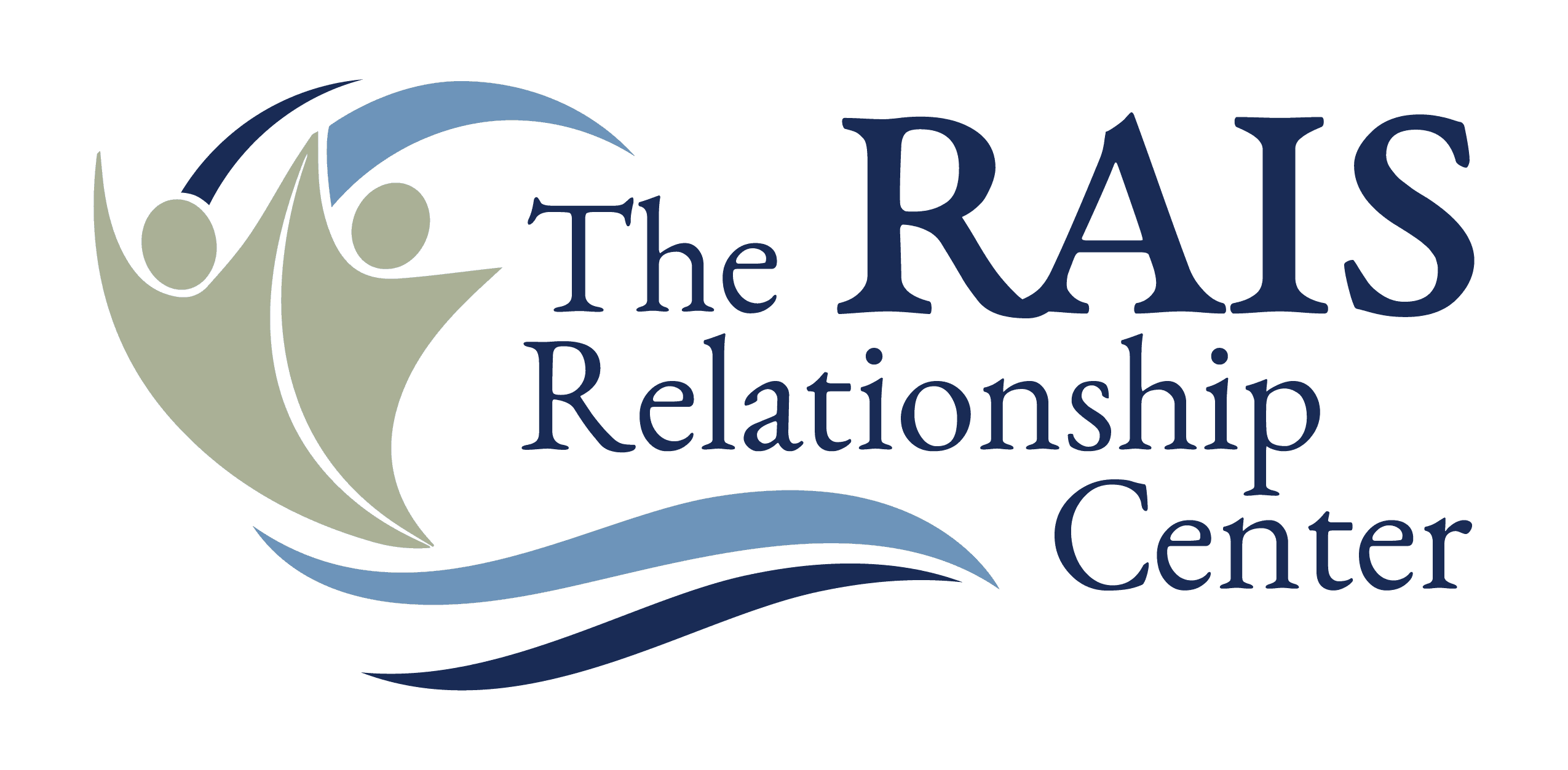Christine Petrik, LCSW
ABOUT RAIS
R
A
I
S
The Origin of RAIS
RAIS comes from the Buddhist Mindfulness practice RAIN. The acronym RAIN, first coined over 20 years ago by Insight Mindfulness Meditation teacher and practitioner Michele McDonald, and widely taught by Tara Brach
was initially designed to help individuals deal with their own reactivity. We’ve adapted this practice to make it Relational, thereby useful and usable to couples. We refer to this practice by the acronym RAIS (pronounced raise).
Why We Practice RAIS
We believe that the practice of Intentional Conscious Dialogue, one partner at a time talking, while the other is actively listening, is the path to fully restoring compassionate connection and thus feeling fully alive. Many times being ‘ready’ enough to have a compassionately productive dialogue requires the critically necessary intentional pause. When a rupture occurs with our partner, our brain can feel like it has been hijacked by emotional impulses and we don’t feel capable of responding in a way that we’d really want. Research has clearly shown that if we are in this state of emotional reactivity we will not have a constructive, healing conversation. RAIS is something we can do to prepare for a conscious intentional Dialogue.
What RAIS Stands For
R
Recognize
Recognize what is happening: You have been triggered. Even if you feel it was your partner who was triggered, you’re having a reaction to their reaction. One of the best ways to recognize you’re having a reaction is to notice how your body signals to you.
Recognize the physical signs of mental distress. Are you experiencing feelings of physical agitation, heart racing, shaking, muscles tightening … Your body is uniquely equipped to signal you that your brain perceives the situation as dangerous. You’ve been activated into high alert. Consciously acknowledge to yourself that you’re ready for war, or ready to flee.
A
Accept / Allow
Accept what IS. It doesn’t mean you like it or that it’s OK. It doesn’t mean something shouldn’t be done to change it. It simply means you cease resisting what IS. Allow the experience to be there without thrashing or denying. Stay present.
Allowing means letting the raw unpleasant thoughts, feelings, emotions, or sensations you’ve recognized to simply be there without running, hiding, attacking, or defending.
Remember the adage - what we resist, persists.
I
Investigate
What’s really going on here for me? Without blaming or shaming yourself, call on your natural desire to understand. Attempt to make sense of why you’re so activated by asking yourself kind questions. What’s the story you’re telling yourself? Connect the dots back to your own history. Is this in any way familiar to something from your past? We say: If it’s Hysterical, its Historical.
You’ll know you’ve done enough investigating (for now), and achieved enough understanding (for now), when you begin to experience a softening. You no longer feel the need to win or be right. Instead, you are ready (enough) to approach your partner with a desire to understand their perspective, and kindly share yours.
S
Share
Make an appointment to have a conscious Dialogue with your partner, where you each take turns sending and receiving. Stay on your side of the street, in your lane, minding your own actions and reactions.
When you’ve earnestly practiced the previous steps, you will be in a less reactive state and therefore not be as attached to an outcome. When you are not attached to a specific outcome (winning) you will experience tender curiosity and wonder about your partner’s experience; the qualities necessary for a truly productive conversation. The Conscious Intentional Dialogue is the practice that completes the cycle and can take you fully home.
Summary
When done well you will have strengthened the powerful PAUSE button inside yourself and prepared yourself for true Dialogue. Each time you are willing to slow down and recognize your own part in any interaction you are rewiring your brain by breaking old habits. You are showing up disarmed and cultivating safe space for you and your relationship.
The greatest gift we can give our relationship is to recognize old destructive patterns and consistently choose a different path. It is then that we are RAISing all of our relationships to a higher place.
"You cannot have Real Love without the Journey." - Harville Hendrix, Ph.D.
Are You Ready for The Journey? Contact Us Now.
Contact The RAIS Center
Thank you for contacting us; we will get back to you as soon as possible.
Oops, there was an error sending your message; please try again later
